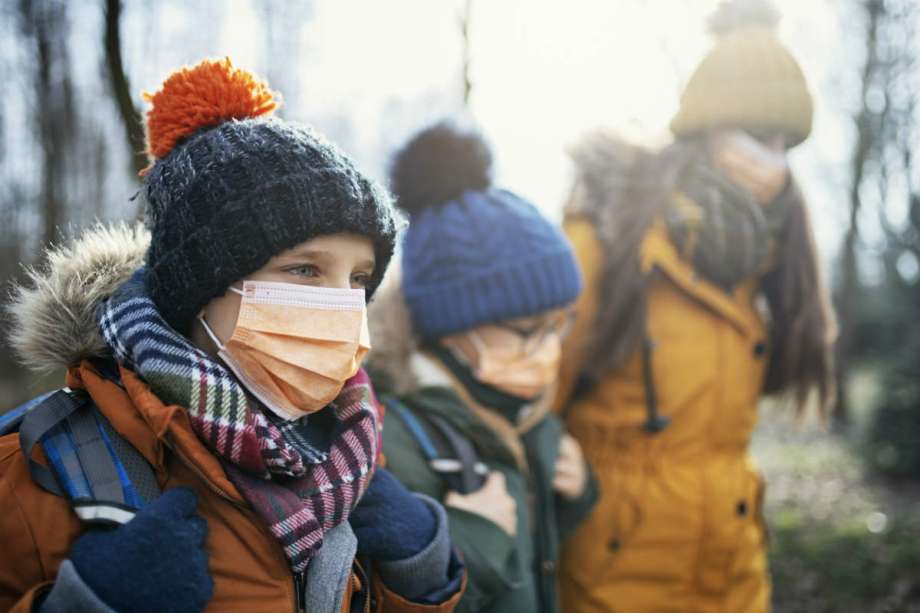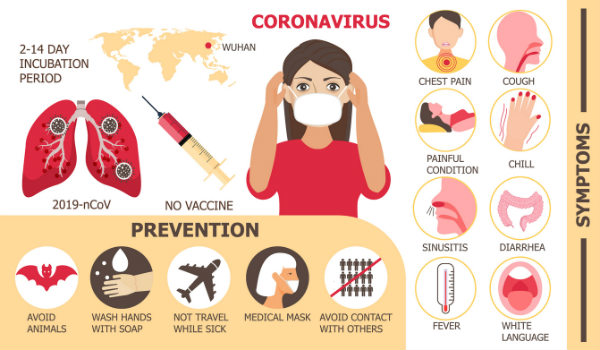The Ultimate Guide to Coronavirus for Parents

Regardless of where you live and how old your children are, if you are a parent, it is completely valid and natural to have concerns about the coronavirus, also known as COVID-19. With breaking news by the hour and panic and fear spreading, it is important for everyone to follow the facts. More importantly, as parents, it’s essential to model healthy behaviors, make smart decisions, and talk openly with our children about age-appropriate details and healthy practices. Use this guide to the coronavirus for parents to learn the facts about the virus, how to stay safe, and the tips and resources you need for talking to your kids about COVID-19.
More: Cold and Flu Season: Are You Feeding Your Kids Right?
What is the coronavirus?
“The coronavirus” has been called a novel coronavirus because it is new and has been previously unidentified. COVID-19 is the specific virus that we are hearing about via the news and social media right now. There are other kinds of coronaviruses that have been regular parts of all of our lives for quite some time. The ones we have experienced before the COVID-19 outbreak were mild and related more to the common cold.
What are the symptoms of COVID-19?
The symptoms of COVID-19 can range from mild to severe. The most common reported symptoms include fever, dry cough, and shortness of breath. These symptoms can appear anywhere from two to fourteen days after exposure. Some people barely experience any symptoms which makes it easy for them to pass it along to others.

When should I call my doctor?
According to the CDC, call your doctor if you or a family member develop symptoms and have been in contact with a person known to have COVID-19, OR if you or a family member has recently traveled to an area with widespread or ongoing community spread of COVID-19.
How is this coronavirus affecting children specifically?
The good news is that children appear to be the group of people who are least affected by this virus. Most confirmed cases have occurred in adults. When symptoms have been reported in children, they are typically mild. Severe complications like septic shock and acute respiratory distress syndrome are uncommon. As with all age groups though, children with underlying conditions can be at increased risk for severe infections.
Is it safe to continue to breastfeed my child if I contract the virus or if I am exposed to it?
According to the National Perinatal Association, breast milk is the best source of nutrition for most infants. That said, there is still much that is unknown related to COVID-19 so this decision should be made by families in conjunction with their health care providers. Breastfeeding mothers should take good care to not pass along germs to their children by washing hands thoroughly and by wearing masks. If possible, it would be ideal for someone well to feed infants expressed milk.
How can we protect ourselves from COVID-19?
According to the World Health Organization:
- Wash your hands frequently. Use an alcohol-based hand sanitizer or soap and water.
- Maintain social distancing. Keep at least three feet between your family and anyone coughing or sneezing. People at higher risk should also avoid crowds, stay home as much as possible, and avoid non-essential travel and cruise ships.
- Avoid touching your eyes, nose, and mouth. Children will need extra reminders for this one.
- Cover your nose and mouth with your elbow when you cough or sneeze. If possible, cough or sneeze into a tissue and dispose of the tissues immediately after.
- Stay informed and follow the advice of medical professionals.
What resources are available to share with my children to help them understand what is going on with the coronavirus?
- This BrainPop video on Youtube explains the coronavirus to kids.
- PBS shares videos, games, and apps with their signature characters to help explain germs and how they spread to young children.
- NPR has shared this comic in both English and Chinese for older kids to help them understand the facts about the coronavirus.
How do I talk to my children about the coronavirus?
- Find out what they already know, or think they know, and listen to their questions. It is probably unlikely that your children are completely unaware of the virus at this point due to the prevalence of coverage in the news and throughout regular conversation. Asking children what they have heard about the virus is important so you can help them sort through the facts and fiction that they may have picked up already.
- Help children feel safe by letting them know the things that adults have been doing and are currently doing to protect them. It is also important to help children realize that their feelings are valid. We all can benefit from reminders that people are hard at work to protect us and that there are many ways that we can help to protect ourselves.
- Keep the news channels off and monitor your child’s time online so they don’t overwhelm themselves with COVID-19 information. This can lead to panic and anxiety.
- This is a great time to focus on activities that comfort your children, no matter how old they are. Whether it’s reading favorite books, playing games, giving extra snuggles, or watching funny movies, we could all use a little levity right now.
- Take the time to teach your children how to wash their hands properly. Singing the birthday song twice as you all scrub your hands thoroughly with soap and water is an easy way to help them remember how long they should be scrubbing.
- Being prepared and working on it as a family is not only helpful for the obvious reasons; it also can provide everyone in the family with comfort to know that you are doing all you can. Following this CDC checklist for home preparation is a good place to start.
Overall, it is important to stay informed and to make yourself available to your children to discuss both the facts about coronavirus and children’s concerns. Reminders about the precautions we can all take are important, but it is also very important to remain calm and to reassure your family. Helping children understand that adults both at home and at school are taking care of their health and safety is essential.
Check out The Germiest Places in Your House for ideas on where and how to disinfect.

